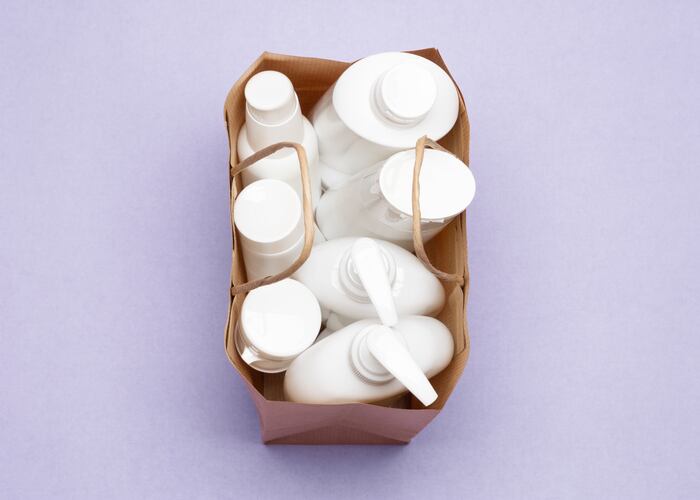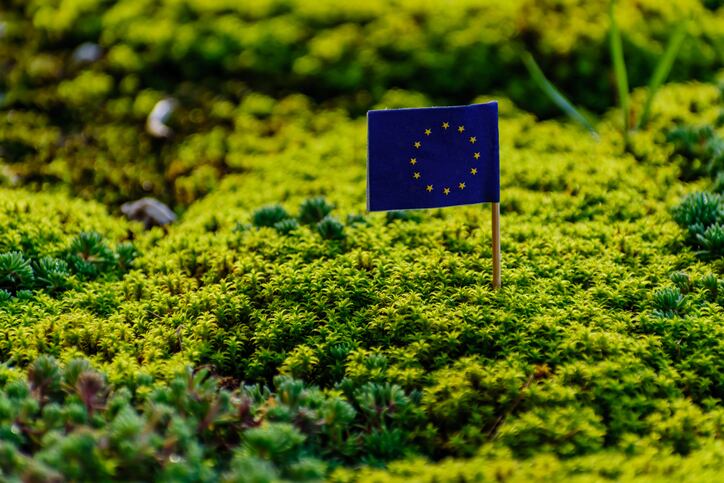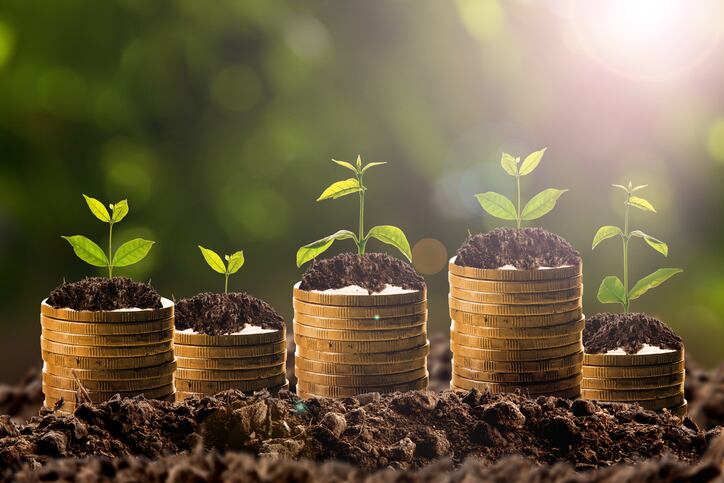On Earth Day 2020 – a day kickstarted by non-profit Earth Day Network in 1970 to celebrate and support environmental protection – CosmeticsDesign-Europe looks back at some environmental actions and pledges made by the beauty and personal care world and digs into areas of future opportunity identified by experts in the field.
A ‘green uprising’ across Europe
At the start of 2020, we identified ‘a green uprising’ as one of five mega-trends to watch for the beauty and personal care category in the EMEA region. This trend holds particularly true for Western Europe, where, according to Kantar, consumers typically take a bottom-up approach to tackling environmental challenges and vocally advocate environmentally friendly behaviour.
For companies operating in Europe, sustainable efforts not only sit within these high consumer expectations but also within an important and evolving legal context.
On December 11, last year, the European Commission published The European Green Deal – a wide-reaching programme that sets out Europe’s goal to become the first climate-neutral continent by 2050 whilst leading against single-use plastics, further slashing carbon emissions and building circular business models.
Ursula von der Leyen, president of the European Commission, said Europe will do “whatever it takes to unlock the investment, the innovation and the creativity that is needed” to achieve its Green Deal goals. And over the next decade, €1 trillion will be mobilised through national co-financing, private investment, and support from the European Investment Bank to do so.
More recently, the European Commission announced its Circular Economy Action Plan, as part of the Green Deal, that it says will bring about legislative and non-legislative measures on circularity.
Within this context, Europe’s €78.6 billion cosmetics and personal care market – the largest in the world – has plenty to play for in driving sustainable innovation.
John Chave, director-general of trade association Cosmetics Europe, said it is no longer possible to disregard the green agenda; industry must reassess its environmental position collectively.
And numerous experts agree collaboration is everything. Chris Sherwin, director of sustainable design consulting firm reboot innovation, said beauty must tackle sustainable innovation without competition.
Plastic promises: Reduce, reuse, recycle

A wealth of major beauty and personal care brands, and smaller indie brands, have made plastic reduction pledges in recent years.
In October, last year, Unilever pledged to halve virgin plastic use across its entire portfolio by 2025, either cutting use completely or using alternatives like cardboard, bamboo and recycled materials. It said most of this action will take place across its personal care and homecare divisions.
In the same month, The Body Shop said it plans to replace all recycled PET with Fair Trade plastic within three years – a move it can now make following two years of work to build a solid supply chain with Plastics for Change in India.
Beauty major L’Oréal also announced a project to launch paper-based cosmetic tubes that it co-developed with packaging firm Albéa, a development it said takes the company “one step further” in efforts to improve packaging footprint. The paper-based tubes are scheduled to launch across skin care lines in the second half of this year.
US private recycling and waste management firm TerraCycle is also working with a wealth of beauty players to drive up circularity in packaging – offering return and reuse schemes for consumers and designing durable and reusable formats under its LOOP programme.
Amanda Balada, business development manager at TerraCycle Europe, said consumers are increasingly focused on sustainability, now trending from “disposability to durability”.
Mary Lord, president of the Society of Cosmetic Scientists, said less packaging is indeed a “big trend and very, very important”. And from a formulation standpoint, Lord said it presents plenty of challenges, but these challenges can be tackled if industry starts to think differently.
Climate change commitments, carbon reduction collectives and circularity

At last year’s United Nations’ Climate Action Summit held in New York, the business-led One Planet Business for Biodiversity (OP2B) coalition formally launched – designed to drive sustainable agriculture throughout global supply chains. Companies from food, fashion, beauty and ingredient sectors formed the coalition, with L’Oréal and Unilever two major players in the list.
L’Oréal and Unilever, along with numerous beauty companies and suppliers, including Beiersdorf, Chanel and Natura & Co, also signed up to the UN’s Global Compact Business Ambition for 1.5°C initiative – a coalition to develop business models with science-based targets that limit a global temperature rise above pre-industrial levels. L’Oréal has committed to zero-net emissions by 2050 as part of this.
In March, this year, Beiersdorf chairman Stefan De Loecker told investors on the company’s full-year 2019 earnings call that climate change is “one of the greatest challenges of our time”. This, he said, is why Beiersdorf plans to make all production operations climate-neutral by 2030 and slash emissions across its entire value chain by 30% by 2025.
Beiersdorf, alongside L’Oréal, has also been identified a leader in the personal care space for its sustainable palm oil commitments and initiatives by non-profit Carbon Disclosure Project (CDP).
Plenty of beauty manufacturers and suppliers have also signed up to the Ellen MacArthur Foundation in recent years – set up to work with business, government and academia to build a framework for a restorative and regenerative economy.
Most recently, beauty players signed on to support the foundation’s development of an online tool ‘Circulytics’ to help businesses measure and track progress towards economic circularity.
Beauty’s future? Reductionism, carbon capture, biotech and blockchain

As the beauty industry looks to the future, perhaps it can draw inspiration from futurologist and founder of Hint Futurology Helga Hertsig-Lavocah who said sustainability must soon become a side-effect, rather than a selling point, and reductionism has to be prioritised.
“Less is more; we all know people want less things,” Hertsig-Lavocah said. “Reductionism is, for me, the big thing (…) Reductionism in terms of the amount of shower gels, shampoos, and everything we’re putting out there. And then not having this thing that ‘just because it’s sustainable it will sell’.”
Another futurologist Monique Large, founder of trend consultation firm Pollen Consulting, suggests carbon capture might even be a possibility future beauty packaging developments.
Carbon capture – taking CO2 from the atmosphere and trapping it into soil or building materials – is already worth an estimated $6 trillion, so she said why not consider it in beauty and create hyper-sustainable brands? “It’s really emerging for packaging in cosmetics, and fiction because it’s, of course, probably very, very expensive to do. But it’s important to question our consumption and our quest to decarbonise and to lower the pressure of consumerism.”
Andrew McDougall, associate director for Mintel Beauty & Personal Care, said beauty innovation over the next decade will see nature and science blur, with the true power of biotechnology unfolding to take sustainable cosmetics forward.
And using ‘engineered natural ingredients’, McDougall said, ought to be leveraged by beauty players looking to satisfy consumer desires for a mix of safety and sustainability.
Blockchain technology to guarantee supply chains might also be on the agenda for beauty brands in the future, according to Ryan Whittaker, consumer analyst at GlobalData.
Whilst use of blockchain remains “relatively niche” in beauty, largely because it is expensive and complex to run, Whittaker said it could potentially be used to provide transparency on sustainable efforts, a bit like how it has been used by food companies to assure provenance.
Editor's Thoughts

This feature, of course, is only a snapshot of what industry has been up to over the last few years. Worldwide, there are lots of beauty brands, retailers, manufacturers and suppliers with important environmental commitments and sustainable initiatives - far more than what is outlined in this piece.
But whatever the future holds, it remains clear beauty players worldwide have plenty of future sustainable innovations to consider this Earth Day, and every day in between. The consumer appetite is there; the regulatory impetus is there. And at a time when we’re faced with an ongoing global health crisis, and soon-to-be economic crisis, it ought to give industry pause for thought on exactly how it can contribute further to the sustainable future of our planet.




